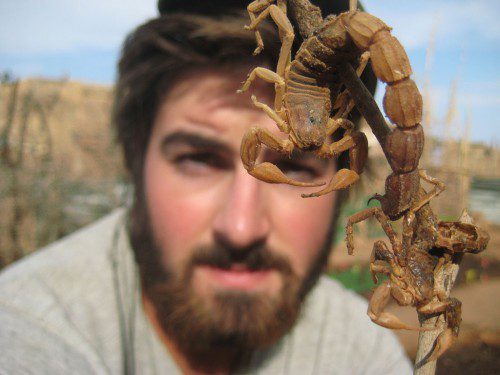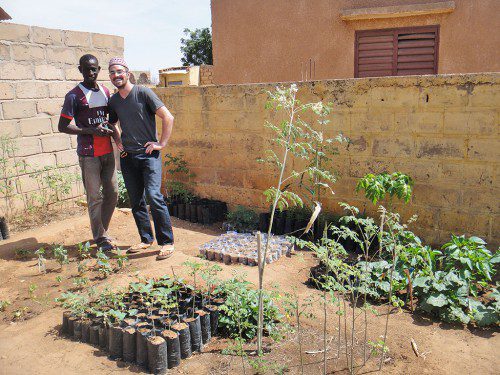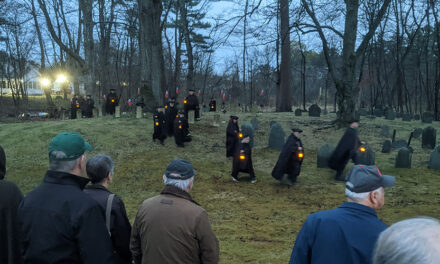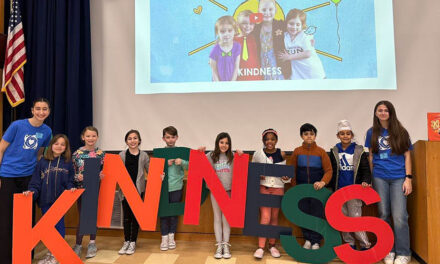
IF YOU build it, they will come is a saying that applies to both predator and prey. Corey Dolbeare soon discovered that predators, like this scorpion, thrived in the garden ecosystem he created from the once barren, unused space in the village of Goudoude in Senegal.
Editor’s note: Corey Dolbeare has served as a Peace Corps volunteer in Goudoude, Senegal, West Africa, since September of 2013 as an agroforestry volunteer and is due to return to the U.S. in November of 2015.
He is a 2007 graduate of Lynnfield High School. He graduated from St. Michael’s College in 2011 with a B.S. in biology and a minor in chemistry. He was accepted into the Peace Corps Senegal International Program through the University of Washington in Seattle as an agroforestry volunteer. He is earning his master’s degree in natural resource management through UW’s School of Environmental and Forest Sciences and anticipates completing the degree requirements in 2016.
Readers can follow his blog at Bearinsenegal.wordpress.com.
Corey is the son of Glenn and Melanie Dolbeare of Wakefield.
By COREY DOLBEARE
a.k.a. bearinsenegal
GOUDOUDE, Senegal — Before I came to live in Goudoude, my first aspiration as an agroforestry volunteer was to create a tree nursery where people could come learn about trees and have access to species that weren’t previously available in the area. To do this I needed a safe, fenced off place. My brother Abou helped me make a fence. And in all honesty, he and my friend Oumar made the fence. I stood and watched… and ‘directed’ if you will.
Well, the space turned into a garden as well. I had wanted to try out some of the Peace Corps gardening techniques that I wanted to help people with. I needed the experience working with new trees and crops, the soil, the climate, the weather, etc. Doing is learning.
All disasters aside, the little Eden took on many faces over the course of the seasons. Folks would always ask me what was what, for I was growing things they had never seen before.
What was I growing? More like, What wasn’t I growing…
• Moringa
• Leucaena
• Pigeon Pea

GARDEN of Eden. Corey Dolbeare and his brother Abou admire the fruits of their labor in the garden Dolbeare established for the village of Goudoude where he lives in Senegal as an agroforestry volunteer with the Peace Corps.
• Cashew
• Guayava
• Pomegranate
• Flamboyant
• Bombardia
• Papaya
• Ziziphus
• Baobab
• Citrus
• China Pride
• Bougainvillea
• Hibiscus
• Okra
• Beans
• Neem
• Agave sisal
• Sweet Sop
• Sour Sop
• Watermelons
If you know me, you know I like to change things around a lot. Mix things up a bit.
What made me happiest about creating this garden was the life that returned to our yard, which was once a barren, unused space. Frogs, lizards, praying mantis, scorpions, birds, geckos, butterflies, beetles, and so many other nameless critters came to inhabit the niches of this space. It’s another classic example of how when we take care of our environment and provide good stewardship, biodiversity can thrive — not just us.
A huge praying mantis made my moringa trees his home. A positive omen. Predators indicate ecosystem health. They help control populations of other creatures, who can often become pests if left unchecked.
Predators reproduce less rapidly than their prey, as is nature’s design. So when you have them, you have to foster them. Unless they are menacing scorpions. Those my family says must go.




